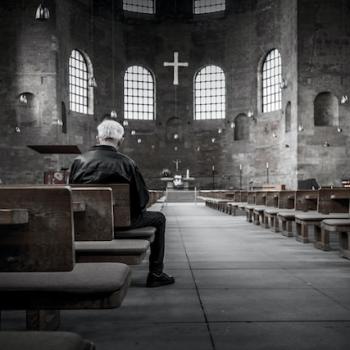
I love them and I hate them in equal measure for their perverse contrariness. At times, they are life-saving guardrails that steer my path and promote my growth. At other times, they are the bars of a jail cell that restrict my freedom and poke at my pride. Sometimes, they help me find my way. Other times, they get me completely lots. They are rules. And there are lots of them.
The Good, the Bad, and the Ugly
When I was an infant, rules were a blessing even though I was unaware of them. The regular feedings and diaper changes, the rigid schedules for rising and sleeping, all were necessary for me thrive. But they don’t just benefit the baby. It wasn’t until I was a parent of an infant myself that I realized they were also the delicate crucible in which the relative sanity of new parents is tentatively preserved. Without a schedule of mostly predictable nap times, I would have lost my mind.
When I grew a bit older, rules were a colossal drag. They kept me from playing with my neighborhood friends on summer nights after dark and limited my Halloween candy intake. They prescribed what I thought was an arbitrary radius in which I was allowed to ride my bike and randomly codified the hours of the day in which I would complete my homework. Rules were real party poopers.
“Know the rules well so you can break them effectively.”
~ Dalai Lama XIV
When I got older but was not quite a teenager, rules became a useful get-out-of-jail card. The more the older kids tempted me with the allure of some high-risk thrill, the more nervous I became about getting in trouble. I’ve never been a caution-to-the-wind kind of gal, so I was grateful to be able to say, “That sounds great, but my parents would kill me.” At those times, rules were a refuge that kept me safe while allowing me to save face.
When I was a teenager though, rules were evil incarnate. Why should my regular curfew be a full hour earlier than the curfew of my friends? How come everyone I know can go to that party but not me? Why am I not allowed to go to the concert just because it’s on a school night? During high school, rules were a cruel prison from which escape seemed ever elusive.
Adulting
But when I was a young adult, rules regained their previous charm. As a student teacher, I clutched them with white knuckles, praying they would save me from the imposter syndrome I experienced as an “adult professional” in a room with teenage students only five years my junior. My first paid job as a teacher was as a sub covering a long-term maternity leave at an all-boys Catholic high school. I clung to my detention pad as though it were the last life jacket on a sinking ship.
But as I grew in experience and self-confidence, rules began to chafe yet again. Why do I have to engage in social events with friends of my parents who aren’t friends of mine? Why do I have to always do what is expected of me? And why must I go to church every Sunday or abstain from meat on Fridays during Lent?
The rules we choose to follow – or not – determine our life experiences every bit as much as our DNA.
It Is Written
The first reading this third Sunday of Lent is a recitation of the Ten Commandments in the Book of Exodus. At the time of the Old Testament prophets in the Hebrew Scriptures, rules were as essential as oxygen or water. Of course, life in sixth century BCE was defined by hardship and uncertainty, and the current scientific understanding of our world today was centuries away. Rules helped the Israelites achieve a sense of social order and individual direction in a scary, dangerous world. It makes sense that Moses came down the mountain, not with a love letter from God or a beautiful work of art celebrating the covenant with his people, but instead with a litany of laws etched indelibly in stone.
Against that backdrop, this week’s gospel reading tells the story of Jesus “cleansing the temple.” Jesus is ticked off that the place set aside for worship has been turned into a marketplace for selfish monetary gain. I’m sure there were any number of rules about appropriate temple behavior, and I’m just as certain that Jesus’ get-the-hell-out approach featuring overturned tables, the use of a whip, and harsh language did not meet those behavioral prescriptions.
In other words, Jesus had to break the rules to make a point about breaking the Rules.
The capital “R” Rules, that is.
The Road Less Traveled
Devout Jews in Jesus’ day believed that all the commandments had to be adhered to in equal measure. So, when the Jewish leaders of the time began to bristle about Jesus’ increasing popularity, they tried to trick him by asking, “Teacher, which commandment in the law is the greatest” (Matthew 22:36)? The only proper answer would have been “all of them.” But Jesus turns the tables on that one too and says that Love of God and neighbor is the most important law to follow.
The capital “L” Love, that is. It’s the Love that isn’t a feeling of warmth or an arbitrary preference. It’s the Love that we came from and to whom we will return. And it is who we are at our deepest essence.
Rules are good things. And bad things. The rules we choose to follow – or not – determine our life experiences every bit as much as our DNA.











